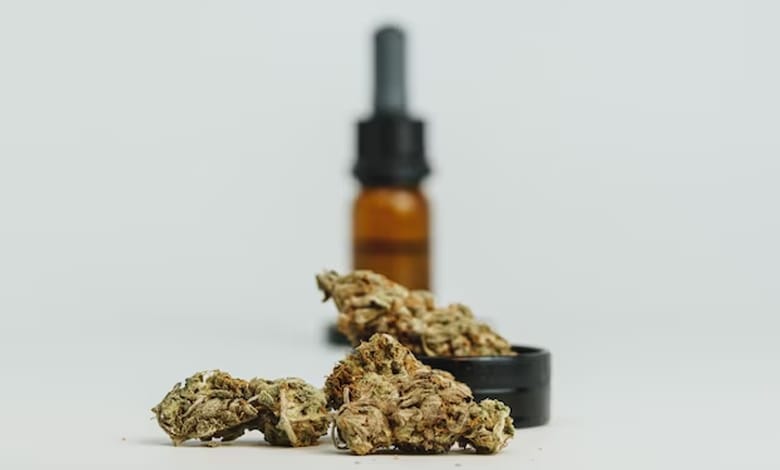
Does THCA Flower Get You High?
Raw cannabis plants contain tetrahydrocannabinolic acid, or THCA. The psychoactive effects generally associated with marijuana are caused by a different compound, THC (tetrahydrocannabinol). THCA itself has garnered attention for its therapeutic potential and its ability to provide certain effects.
The purpose of this article is to gain a better understanding of the differences between THCA and THC flower and whether THCA can get you high.
What is THCA Flower?
THCA (tetrahydrocannabinolic acid) flower refers to the raw or unprocessed cannabis plant material that contains high levels of THCA, which is the acidic precursor to THC (tetrahydrocannabinol), the psychoactive compound in cannabis. When cannabis is in its raw, unheated form, it primarily contains THCA, which is non-intoxicating and does not produce the typical “high” associated with THC.
THCA is converted into THC through a process called decarboxylation, which occurs when cannabis is exposed to heat, such as when it’s smoked, vaporized, or baked. This conversion process removes the carboxyl group from THCA, turning it into THC and making it psychoactive.
Some people use THCA-rich flowers for potential therapeutic benefits without experiencing the intoxicating effects of THC. They may consume THCA by juicing or blending raw cannabis flowers into smoothies, using them in tinctures, or incorporating them into other non-heat-related consumption methods. It’s believed that THCA may have anti-inflammatory, neuroprotective, and antiemetic (anti-nausea) properties, although more research is needed to fully understand its potential health benefits.
THCA flower is often distinct from THC-dominant cannabis strains in terms of effects, as it lacks the traditional “high” associated with THC. However, it’s important to note that laws regarding the cultivation, possession, and use of cannabis and its derivatives vary by location, so it’s essential to be aware of local regulations before using or possessing THCA-rich products.
The Difference Between THC and THCA
It’s essential to understand the differences between THCA and THC. THCA is the acidic recursor of THC and is typically found in raw and unprocessed cannabis plants. In its natural form, THCA is non-psychoactive, meaning it does not produce the mind-altering effects associated with THC.
THC, on the other hand, is the compound responsible for the euphoria, altered perception, and other psychoactive effects of cannabis. This transformation from THCA to THC occurs when heat is applied to the plant material, a process known as decarboxylation. In decarboxylation, THCA is converted into THC by removing a carboxylic acid group.
Does anyone consume raw cannabis buds?
While the primary reason for consuming cannabis is often to experience the effects of THC, some individuals do consume raw cannabis buds containing THCA for various reasons. Consuming raw cannabis, such as in smoothies or salads, has gained popularity among those seeking the potential health benefits of THCA without the high associated with THC.
One of the most significant advantages of consuming raw cannabis is that it preserves THCA in its natural, non-psychoactive state. This allows individuals to harness its potential therapeutic properties without the intoxicating side effects. Some of the purported benefits of consuming raw cannabis include anti-inflammatory effects, pain relief, and relief from nausea.
Getting the desired effect from THCA flowers
If the goal is to experience the effects of THCA without the psychoactivity of THC, there are several ways to go about it. One common method is to consume raw cannabis flowers or leaves. However, it’s essential to note that while this can provide some benefits of THCA, it may not produce an immediate or strong “high.”
To maximize the potential effects of THCA, it’s recommended to use a blender or juicer to create a cannabis smoothie or juice. This method allows for better absorption of THCA, as it is bound to the plant’s fibrous material. Keep in mind that the taste of raw cannabis can be quite earthy and may not be enjoyable for everyone.
Another approach is to incorporate raw cannabis into your cooking, much like using herbs and spices. Some people add raw cannabis leaves or flowers to dishes like salads, pesto, or even as a garnish on top of meals. The THCA remains unheated in these applications, preserving its non-psychoactive nature while adding a unique flavor to the food. Visit ATLRx to learn more about the THCA flower.
So, will THCA flower get you high?
THCA is not psychoactive in its raw and unprocessed form. In contrast to THC, THCA does not possess psychoactive properties. However, as mentioned earlier, when cannabis is heated or subjected to decarboxylation, THCA converts to THC, which can induce the characteristic euphoric and intoxicating effects commonly referred to as being “high.”
Therefore, if you consume THCA in its raw form, whether by blending it into a smoothie, incorporating it into your meals, or even consuming it as a whole flower or leaf, you will not experience a traditional cannabis high. Instead, you may experience some of the potential therapeutic benefits of THCA without the psychoactivity.
The Bottom Line
THCA flower, in its raw and unprocessed form, does not get you high. In contrast with THC, it is non-psychoactive. Instead, THCA offers potential health benefits, including anti-inflammatory and pain-relief properties.
Consuming raw cannabis as a source of THCA has gained popularity among individuals seeking the medicinal benefits without the high. However, it’s important to note that THCA’s effects are distinct from those of THC, and they may not be as potent or immediate. Therefore, if you’re looking to experience the psychoactive effects of cannabis, THCA alone is not the way to achieve that.
Ultimately, whether you’re seeking the therapeutic benefits of THCA or the recreational effects of THC, it’s crucial to understand the distinction between these compounds and make informed choices about how you consume cannabis based on your desired outcome.



